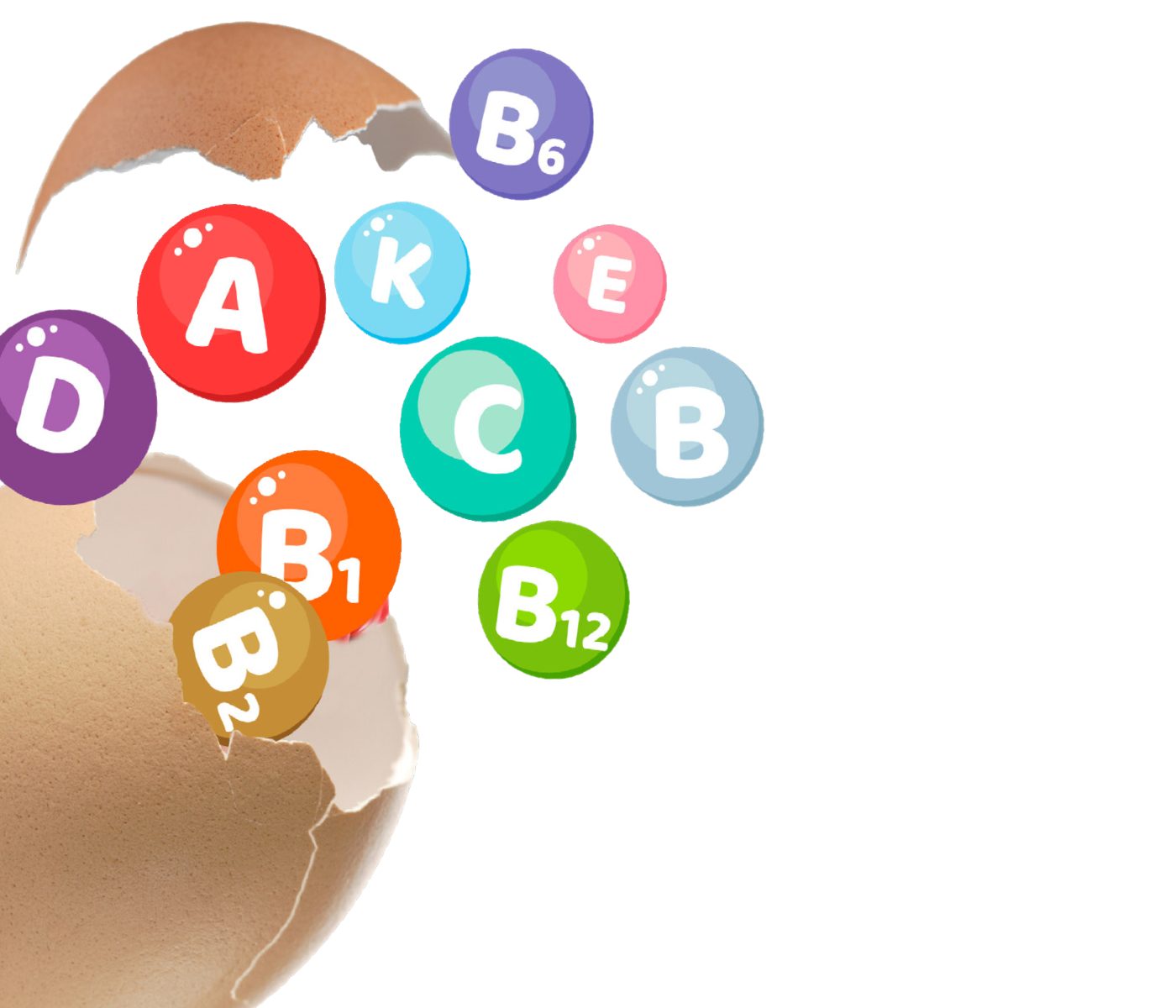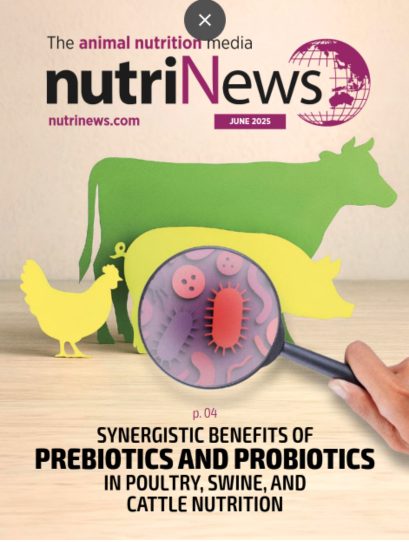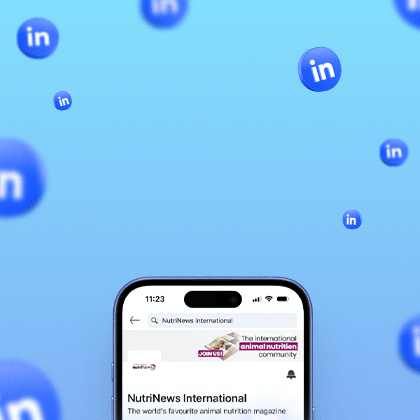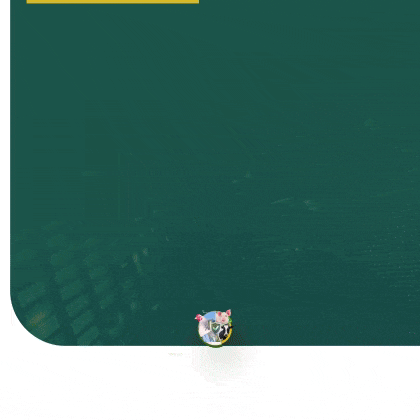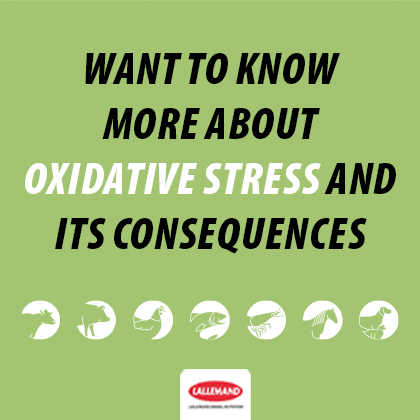Vitamins are essential organic compounds that birds cannot synthesize themselves, thus requiring their inclusion in the diet. They play a vital role in facilitating crucial biochemical processes by acting as catalysts for chemical reactions.
There are also provitamins, substances from which the body can synthesize vitamins. For example, carotenoids (provitamin A) and sterols (provitamin D).
Based on their solubility, vitamins are classified as:
- Fat-soluble vitamins: These are vitamins that dissolve in fat, which is a critical feature enabling organic storage. This category encompasses vitamins A, D, E, and K.
- Water-soluble vitamins: These include the B-complex vitamins and vitamin C, which are soluble in water. Unlike fat-soluble vitamins, they cannot be retained in the body and are absorbed and excreted rapidly.
Fat-soluble vitamins
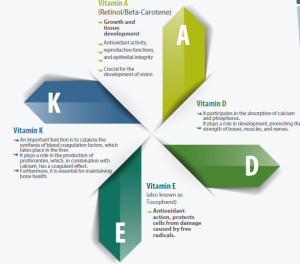
Water-soluble vitamins
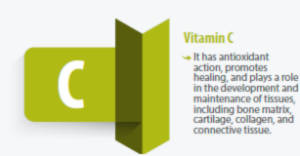
B-complex vitamins comprise eight vitamins, including:
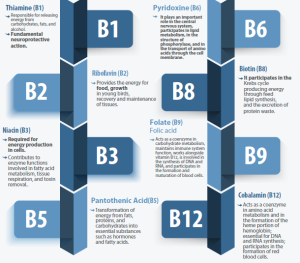
UTILIZING VITAMINS TO TACKLE CURRENT CHALLENGES IN POULTRY FARMING

Managing bird temperatures is a key obstacle in tropical poultry farming. Elevated ambient temperatures during growth and fattening phases lead to a series of responses known as heat stress.
Several biological mechanisms alleviate heat stress, including panting, sweating, and vasodilation. When heat stress prevails, there is a decrease in both feed consumption and bird activity (as shown in Figure 1).
.
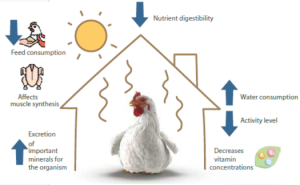
Figure 1: Effects of heat stress on poultry production
Birds spend more time drinking water, resting, and panting. Their ability to control temperature is diminished, especially due to their high body temperature (between 41 and 42 ºC) and the lack of sweating mechanisms, which are present in other animal species.
Heat stress can also reduce nutrient digestibility, fat deposition, and muscle formation in birds.
Furthermore, it can trigger respiratory alkalosis and hinder the immune function of broiler flocks. But how does this relate to vitamins?
| Similarly, heat stress results in a reduction in the body’s levels of antioxidant vitamins, including vitamins C, A, and E. It also increases the excretion of vital minerals crucial for plasma composition and tissue development, leading to damage to cell membranes. |
Vitamin C, also recognized as L-ascorbic acid, is a robust antioxidant typically produced in the liver and kidneys of birds.
Various literature recommendations suggest supplementing vitamin C to alleviate the effects of heat stress, assuming that during such conditions, the demand for this vitamin may exceed its organic synthesis capacity.
![]() The role of vitamin C is linked to the synthesis of white blood cells and, as a result, it positively impacts bird health.
The role of vitamin C is linked to the synthesis of white blood cells and, as a result, it positively impacts bird health.
 As per multiple authors, incorporating ascorbic acid into the diet can enhance carcass characteristics, ensure the formation of blood components, and, most importantly, mitigate the adverse effects on the growth of chickens reared under heat stress.
As per multiple authors, incorporating ascorbic acid into the diet can enhance carcass characteristics, ensure the formation of blood components, and, most importantly, mitigate the adverse effects on the growth of chickens reared under heat stress.
Research has demonstrated that adding vitamin C to the diet improves feed consumption, average daily weight gain, and feed conversion.
 Vitamin E, as a significant fat-soluble antioxidant, provides protection against oxidative stress.
Vitamin E, as a significant fat-soluble antioxidant, provides protection against oxidative stress.
Crucially, it cannot be synthesized by birds and relies entirely on dietary supplementation. According to the NRC (1994), the recommended dietary vitamin E content for broiler breeders is 6 mg/kg.
In addition to its role as an antioxidant, vitamin E plays a vital role in broiler breeder productivity, egg quality, hatchability, and, most notably, the quality of hatched chicks.
Vitamin E mitigates ovarian aging resulting from oxidative stress, which is responsible for the reduced productivity of older laying hens.
Studies indicate that dietary supplementation in broiler breeders has positive effects on increasing the antioxidant capacity of egg yolks and enhancing embryo and chick development.
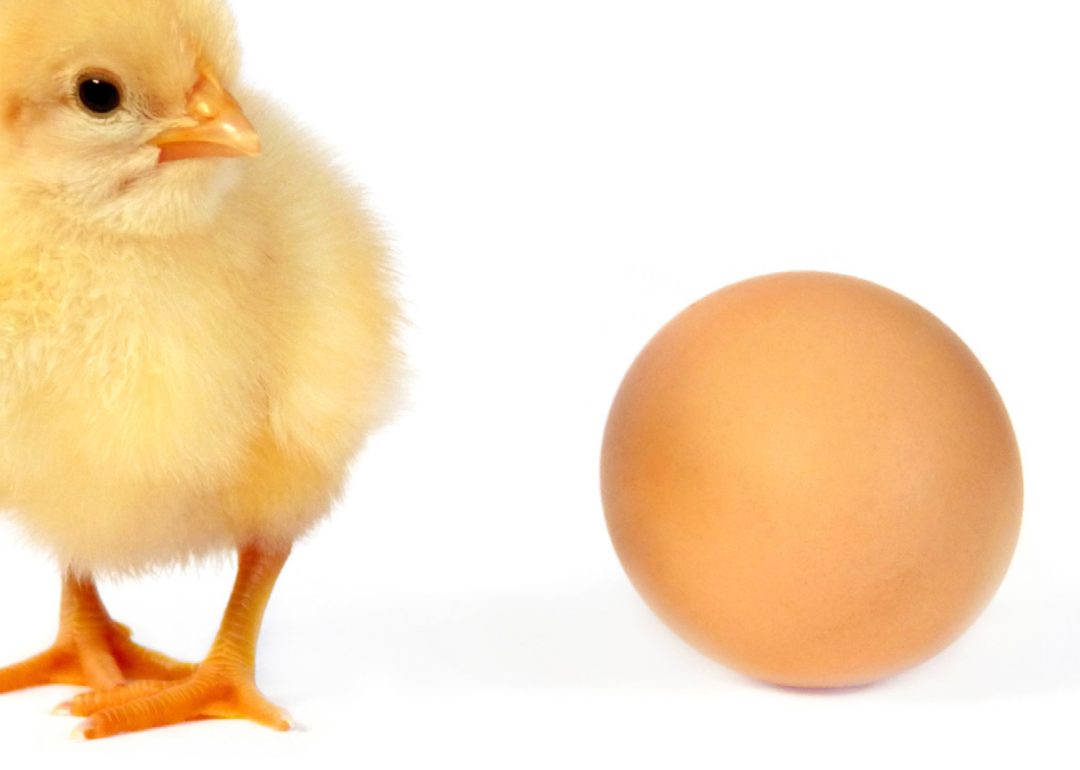
For these chicks, with limited feed intake capacity, vitamin E supplementation is particularly important for growth, boosting the initial weight gain rate.
 Another significant role of this vitamin is related to protecting eggs during pre-incubation.
Another significant role of this vitamin is related to protecting eggs during pre-incubation.
As a potent antioxidant, eggs from supplemented birds demonstrate higher hatchability compared to control groups without supplementation. This significantly influences the viability of chick production.
Vitamins play diverse fundamental roles in the origin and preservation of life, complementing structural feed ingredients and supporting essential organic functions.
 Scientific progress has led to concentrated applications to prevent or rectify deviations and, most importantly, to enhance flock productivity. Scientific progress has led to concentrated applications to prevent or rectify deviations and, most importantly, to enhance flock productivity. |
These flocks, the result of advanced genetic advancements, require sophisticated diets to unlock their complete production potential, embodying the essence of competitive and sustainable poultry farming.
References available upon request
